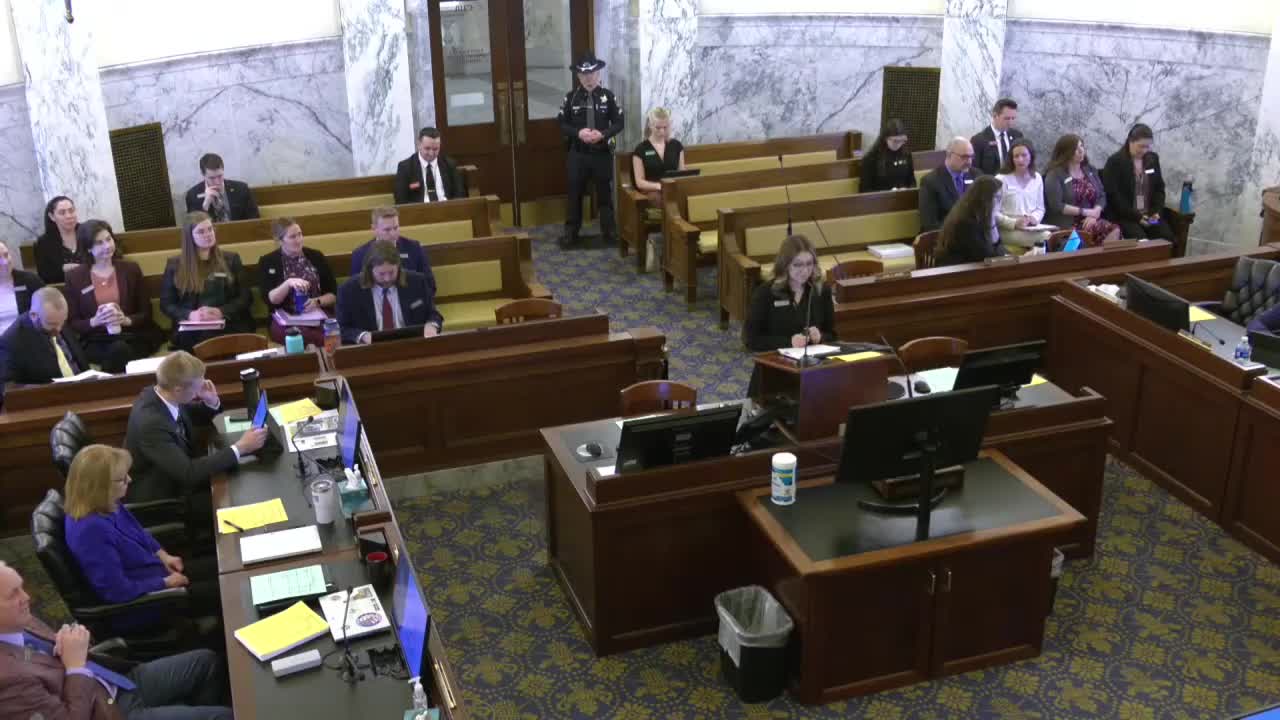JFAC accepts Economic Outlook committee report after forecast shows slowing but resilient Idaho economy
Get AI-powered insights, summaries, and transcripts
Subscribe
Summary
The Joint Finance-Appropriations Committee accepted the Economic Outlook and Revenue Assessment Committee's report after hearing that Idaho's economy is slowing but shows key strengths such as strong wage withholding and growth tied to major projects. The committee recommended caution as it finalizes revenue assumptions for FY24'FY26.
Erin Phipps, revenue analyst for the Idaho Legislative Services Office, told the Joint Finance-Appropriations Committee on Friday that Idaho's economy appears to be slowing but is not in a downturn, and that the state faces notable near-term impacts from large projects such as a new Micron semiconductor fab and work at the Idaho National Laboratory.
Phipps told JFAC members the recently released Department of Financial Management (DFM) monthly forecast trimmed the August projection for fiscal year 2024 general fund revenues by about $190 million and put fiscal year 2024 general fund receipts at just over $5.31 billion, excluding $410 million in earmarks from House Bill 1. She described two central takeaways from the Economic Outlook and Revenue Assessment Committee: that the national and state economies appear to be slowing while remaining resilient, and that Idaho faces sizable localized impacts from technology and research investments.
"The economy does appear to be slowing, but it is also showing strength in many indicators," Phipps said during her presentation. She highlighted strong individual income tax withholdings this fiscal year despite recent income tax rate reductions, rising refunds tied to the state-and-local-tax (SALT) workaround, and continued growth in real per-capita income in Idaho compared with the national average. Phipps also discussed sales tax patterns and two recent sales-tax earmarks created by lawmakers: distributions under House Bill 1 (2022 special session) and House Bill 292 (2023 regular session).
Representative Steve Miller, reporting for the Economic Outlook and Revenue Assessment Committee, described the committee's constitutional role in reviewing the governor's revenue projections. He said the committee considered roughly 20 presenters and three professional forecasts in addition to the executive forecast before arriving at a median projection. Senator Kevin Cook, the committee co-chair, said the committee settled on a median that reflected broad agreement among members after extensive testimony.
After the presentations and a brief question period, JFAC accepted the committee's report by unanimous consent. Representative Dorothy Horman (Madam Co Chair) moved to accept the report; the committee proceeded by voice vote and the chair declared the report accepted after hearing no opposition.
Why it matters: The committee's report and the DFM forecast are inputs to JFAC's work setting revenue assumptions and the fiscal year 2025 budget. The committee recommended caution when making appropriations above its revenue recommendation because of national monetary policy uncertainty and other risks.
The committee and staff repeatedly emphasized they will continue monitoring incoming revenue reports and economic indicators before formally setting a legislative revenue number later in the session. Phipps closed by noting Idaho's relatively strong standing in national measures of economic momentum and that the feared national recession did not materialize in the prior year: "I believed Idaho could weather even a medium sized recession, and I do still believe that."
